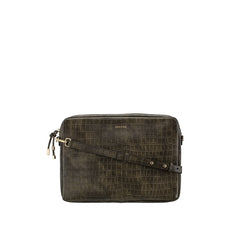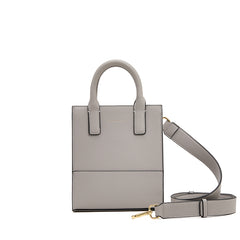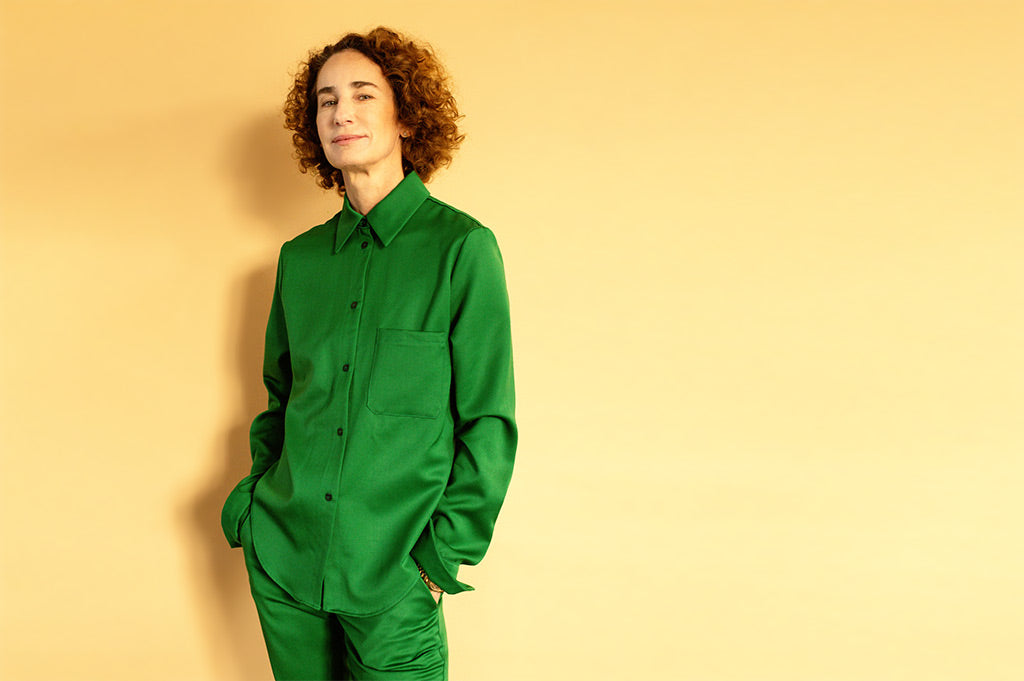In the first interview of our Hēroïne Series, we spoke with the renowned photographer, art director and filmmaker Brigitte Maria Mayer. Although she lives in Berlin, Brigitte has traveled the world creating videos and photographs based on stories from history and mythology set in modern times. She creates cinematic installations of tableau scenes focusing on the form of the human body. Her stylized images are expressive and sculptural revealing her themes of violence, poverty, religion, justice, war and peace.
She has published numerous films and photo books and her work has been exhibited around the world, most recently at C/O Berlin.
In our interview, she speaks about how she started as a photographer, her recent project where she cast women in male roles and how she feels about being a woman in the art world.
What was your initial motivation to become a photographer?
I can’t remember ever doing anything else. When I was 8 years old my father died and I took his camera from what he had left in his possessions. I started taking pictures outside when I was 10 years old, then I began to arrange in my room little scenes with puppets and eggs and things I found in the kitchen or outside. When I finished school, I didn’t study photography, instead I studied visual communication, but I continued taking photographs and later I also studied moving pictures.
When you were younger did you have any role models or figures who inspired you to become a photographer?
This thing is that I always had male role models. I remember they were kind of like heroes to me. For photographers, I always loved Robert Mappelthrope, I still do, he was such a big role model for me. Also when I was younger, I was living a more excessive life, so the only female role model I had was Louise Bourgeois.
Do you think you express what it means to be a woman through your work?
I am a woman, but for me I feel I have a lot of male parts in me. Although, I am not sure if things are easier for a woman in the art world, so there is still something to achieve for young female artists.
Has your perception of what it means to be a woman has changed throughout your life?
Yes I think it has changed a lot especially when I see my daughter. She is much more free than I was. I felt as though I had so much more to fight for my sexuality, for my freedom. I’ve seen that my daughter started life with more freedom and more love of herself, I appreciate this a lot.
What projects are you working on now?
I am working on a project about the biblical story ‘The Revelation of Johannes’, but I am casting the personalities of the story as women.
Do you have an unrealised project or a dream project?
I have an unrealised project and a dream project. My unrealised project is my film about Jesus in Ethiopia. I had already started it but my visa to stay in the country was taken away, so I had to finish it in Germany. I still would like to make it again in Ethiopia. A dream project would be to travel by car through all the former Soviet Union states with a play by Heiner Müller, which is called ‘Wolokolamsker Chaussee’. I’d let the play be performed by the people I met on the street.
What part of your career so far has been your greatest achievement?
I made a film, a video installation set in three scenes. It’s was an adaption of a Shakespeare piece titled ‘Anatomie Titus/Fall of Rome’ (2009). I travelled all around the world to make it and casted Jeanne Moreau, a French actress as the main character. To work with her was really a big experience for me and she acted together with my daughter Anna Müller.
What do you hope will change in the future for women?
I think women should not excuse themselves for anything anymore. They should just do things and make no more excuses against other people for anything. Just do it. I also believe there could be a real chance of a better world if women were in more ruling positions.
Hēroïne Series is a collection of interviews with women who embody the spirit of a heroine. They are empowered modern women who are confident in many aspects of their lives, whilst being supportive to other women.



